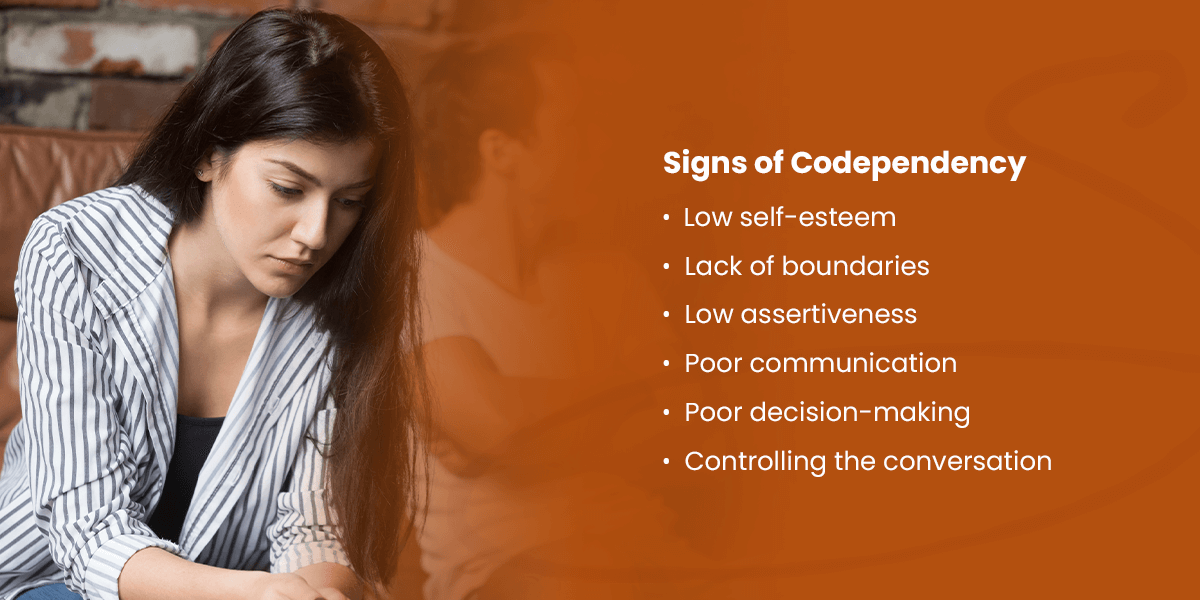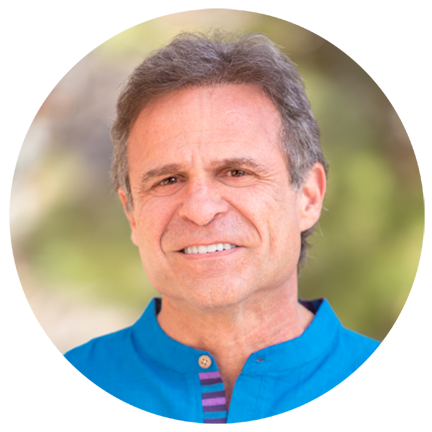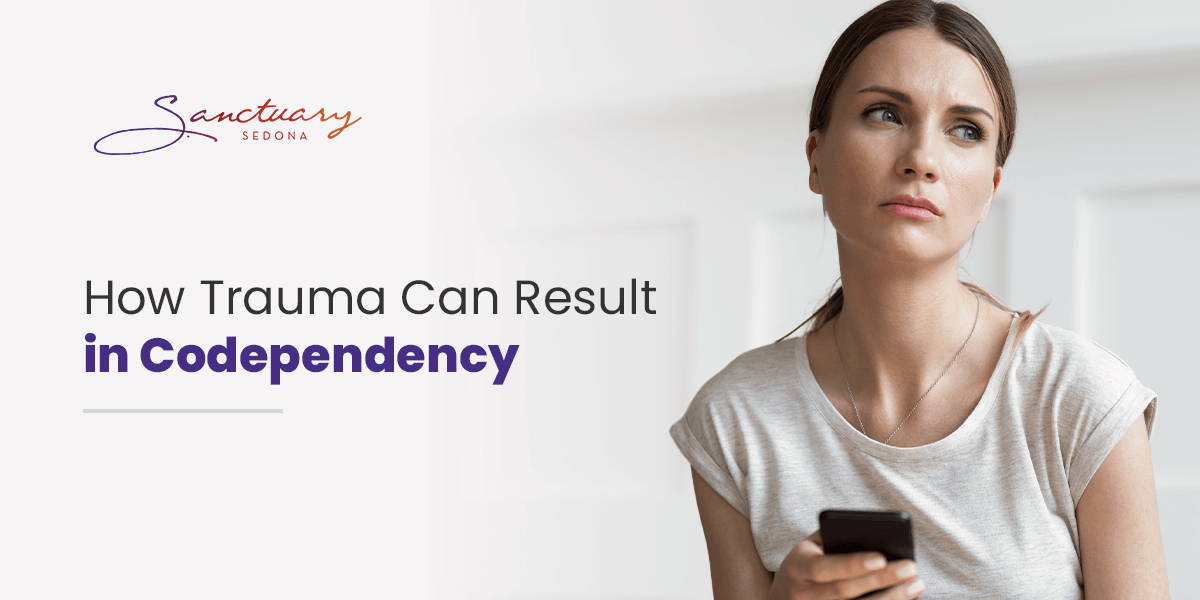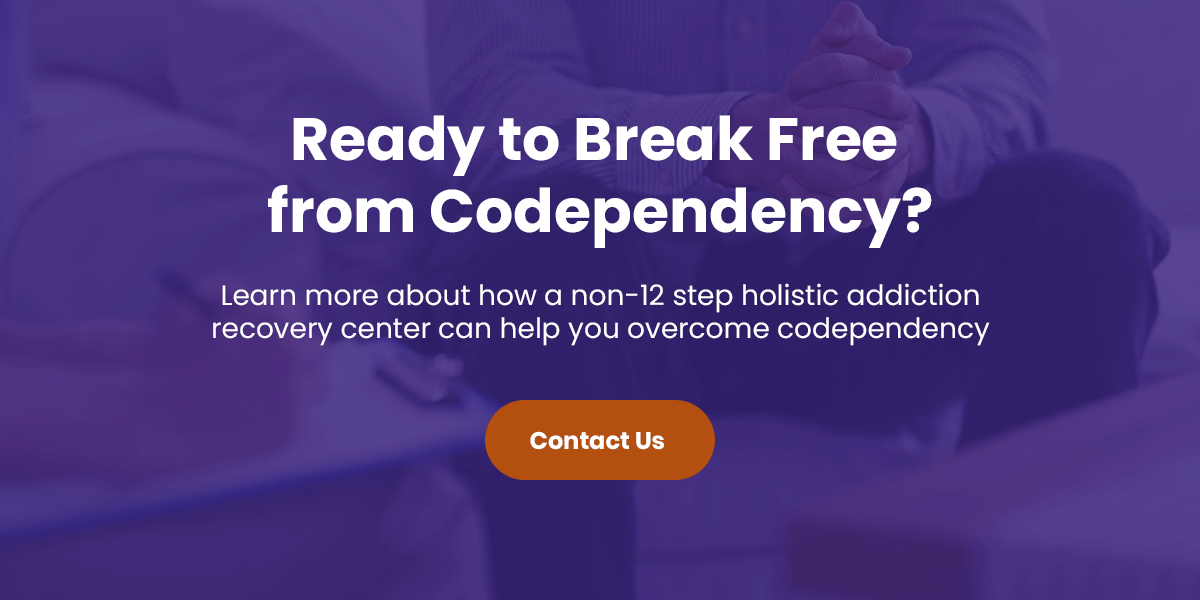Trauma causes extensive damage to one’s emotional well-being, physical health and relationships. A person living with trauma may be more likely to feel completely and destructively dependent on another person, which is called a codependent relationship. Codependency can develop in families and platonic and intimate relationships. It is essential to identify the central problem responsible for a codependent relationship in order to address the source of trauma and begin to heal.
While it can be challenging to break the bad habit of codependency, The Sanctuary at Sedona offers holistic trauma recovery solutions and treatment to help you achieve healthy independence.
Table of Contents
- Why Childhood Trauma and Codependency Go Hand in Hand
- The Root Cause of Codependency
- Signs of Codependency
- Treating Childhood Trauma to End Codependency
- Treat Your Codependency With The Sanctuary at Sedona
Why Childhood Trauma and Codependency Go Hand in Hand
One of the most widespread forms of trauma is childhood trauma. As children grow and develop, they may encounter a wide range of adverse situations that leave long-term psychological damage. While the experience of trauma can take many different forms, childhood trauma results in lasting consequences such as mental illness, physical health problems, substance abuse and codependent relationships.
Some examples of childhood traumas that can lead to codependency include porce, illness, the loss of a loved one, neglect and sexual or physical abuse. A parent’s actions can also significantly and negatively impact the way a child navigates traumatic life events. A child that feels abandoned may feel they have to navigate life as an adult prematurely, lose their sense of self and demonstrate a limited ability to cope with what happens around them.
The Trauma-Bonded Codependent
Codependent relationships are inherently unhealthy, as one person relies on the other to meet their needs. Usually, the other person in a relationship encourages and enables their loved one’s damaging behavior, negative lifestyle choices and impulsive actions. Some people may also bond through trauma — called codependency trauma bonding — and can develop an unhealthy dependence on one another for survival out of habit.
Codependency drastically affects the way people form other relationships. It is also possible for codependency to develop between two people who share the same psychological condition. Codependent people often form relationships with someone who is obsessively controlling, demanding and exploitative.
The Root Cause of Codependency
It is thought that childhood trauma sets the foundation for a person to be codependent later in life, and psychologists are working to understand more about why this pattern of behavior develops. A young child who suffers abuse learns over time that protesting against the abuser will cause the abuse to worsen, so the child learns not to be assertive in situations of confrontation.
Children who argue with or talk back to an abusing parent often face severe punishment, which reinforces the idea that the problems will get worse if the child stands up for their own safety. As this pattern repeats, the child grows up to experience a significant loss of self, and they begin to focus on the needs of others rather than taking care of their own. Due to learned submission in childhood during fearful situations, children develop a conditioned codependent reaction that continues into adulthood.

Signs of Codependency
Every relationship is different, but there are several common signs that may indicate that a person is suffering from codependency:
- Low self-esteem: A person in a codependent relationship may feel unworthy of other people and they’re guilty, shameful or unlovable. It may be difficult for a person in a codependent relationship to demonstrate an outward appearance of confidence.
- Lack of boundaries: People in codependent relationships tend to have poor boundaries with emotions, affection and material things. It can be hard for people in codependent relationships to say no due to feelings of anxiety about disappointing others.
- Low assertiveness: Instead of asserting their own opinions, a codependent person is much more likely to agree with the opinions and views of others.
- Poor communication: A person in a codependent relationship usually doesn’t talk a lot, because they are fearful about expressing their own feelings, views and thoughts. They usually prefer to listen to the conversation instead of actively participating in the discussion.
- Poor decision-making: Instead of making their own decisions, a person in a codependent relationship will rely on others to make those decisions for them. They tend to give up their own preferences and automatically concede to another’s desires.
- Controlling the conversation: A codependent person is often skilled at asking the right types of questions to control the conversation, in an attempt to keep the focus of the conversation away from themselves.
Treating Childhood Trauma to End Codependency
Professional treatment can help address the effects of childhood trauma and help you construct better and healthier relationships. If you have experienced trauma that has made it difficult to develop healthy relationships, The Sanctuary of Sedona can help you overcome it.
At The Sanctuary of Sedona, we get to the bottom of childhood trauma so that you can break the obsessive and controlling confines of a codependent relationship. Our codependency recovery program can help you beat codependency through the use of holistic treatment and energy medicine to heal from unhealthy relationships and lasting childhood trauma. With a focus on healing and balancing energy fields, our staff will teach you how to align your body, mind, soul and spirit to achieve sustainable recovery.
Treat Your Codependency and Codependent PTSD With The Sanctuary at Sedona
It may not be easy to break the unhealthy patterns of codependency without the support of a professional. If you are in a pattern of unhealthy relationships and you are ready to break free from the codependency that is holding you back, then it is best to seek help from a non-12 step holistic addiction recovery center.
Even though many people assume that codependency is very different from other forms of addiction, the truth is that it is still very important to seek professional treatment. If you are interested in learning more about how a non-12 step holistic addiction recovery center can help you overcome codependency, then we invite you to contact us for more information or to call (866) 825-6314 to speak to a counselor today.
He is the Founder, Administrator, Counselor at the Sanctuary at Sedona. He has a BA in Political Science and is currently Senior teaching staff at Four Winds Society, an international school of energy medicine. His credentials also include being an Ordained Minister; a Certified Shamanic Breathwork® Facilitator; a Founding Member Society for Shamanic Practitioners; a Member of Association for Comprehensive Energy Psychology; a Member of the National Institute for Holistic Addiction Studies. [email protected]


